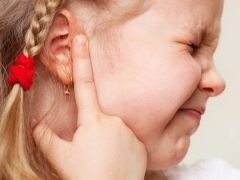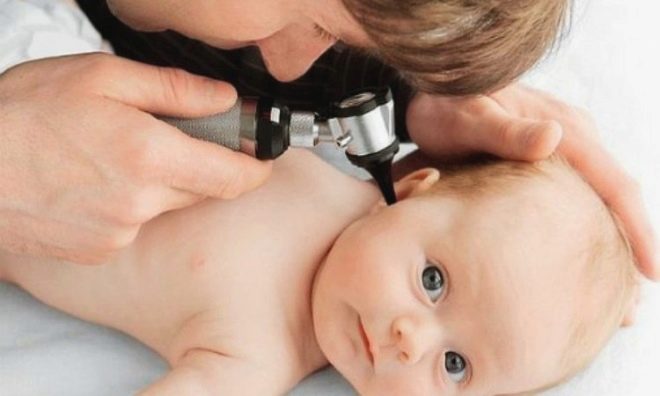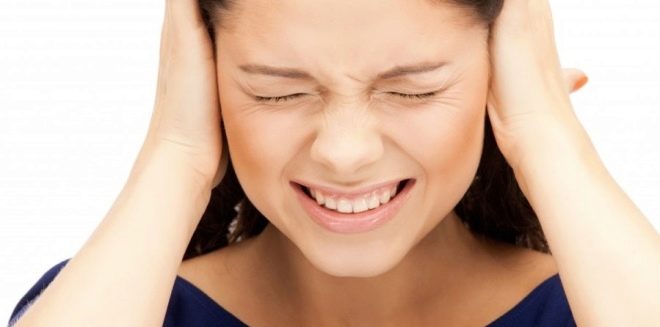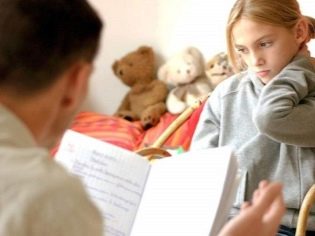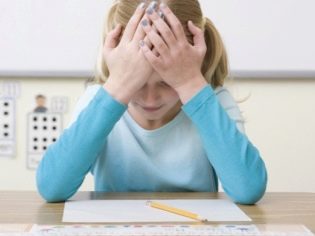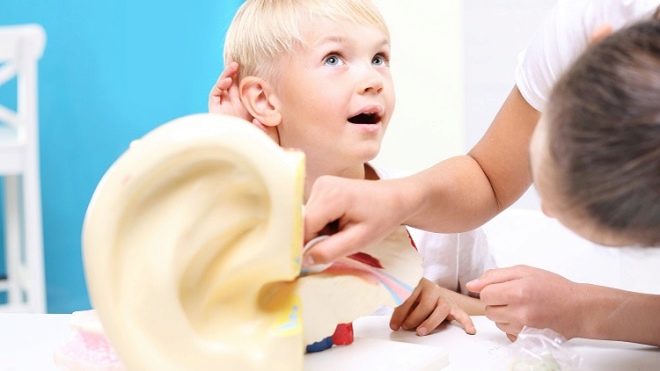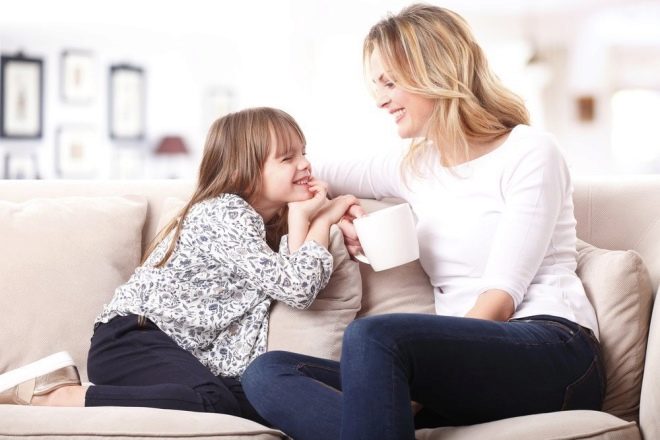Psychosomatics of otitis in children and adults
Everybody gets otitis, regardless of age, but more often than others, children suffer from inflammation of the hearing organs. Medicine explains this by weak children's immunity and structural features of the Eustachian tube - it is narrower in children and located without tilt. But there are other reasons - psychosomatic. We will tell about them in more detail.
general information
Otitis is an inflammatory disease in one of the parts of the hearing organ. If the pinna is inflamed, they talk about otitis externa. With an average (most common) middle ear suffers, and labyrinthitis occurs during the pathological process in the inner ear. According to statistics, 8 out of 10 children under three years of age have time to go through with otitis media at least once. In older age, the disease may be more frequent. In most cases, as the child grows, the Eustachian tube grows and expands, and therefore otitis episodes become rare.
Inflammation is usually caused by bacteria, fungi, viruses.. Often, the mechanism of development of inflammation is closely related to the concomitant, previously started rhinitis, when, when sniffing, sneezing, or not properly blowing, pathogenic organisms enter the auditory tube. Otitis manifests itself with a strong shooting pain in the ear, sometimes it releases pus or blood-sucking discharge from the ear. The temperature rises. There is a feeling of noise in the ear, headaches, there may be dizziness, the auditory function decreases.
Otitis is not always acute, sometimes it is chronic. And in this case it is especially necessary to pay attention to the information presented in this article.
Psychosomatic causes
Psychosomatic medicine treats diseases of the organs of hearing, not only from the point of view of the anatomy and physiology of the disease, but also from the point of view of mental and psychological factors that contribute to the development of the disease. Hearing organs date to person access to audio information. With their help, you can hear others, perceive the sounds of nature, music.
If a person has problems with hearing, it means that there is something that he does not want to hear.. Most often in adults and adolescents this is a criticism of their own, so people who do not want to hear the comments that they perceive are very painful, most often suffer from different forms of otitis. They may even lose their hearing, in whole or in part, creating a sensorineural hearing loss.
Otitis in children is associated with other causes - most often with the sound information that gives the child certain experiences.. It can be quarrels and scandals in the family, harsh remarks and shouts.
The kid does not know how to stop it, does not have the ability and strength to resist it, so he does only what he can do — closes off the flow of sound information that traumatizes his psyche. At the subconscious level, prerequisites are created for the inflammatory process and hearing loss.
The stronger the irritation of an adult or a child, the more severe the inflammatory process will be.. Children are also trying to catch their parents' attention with the disease, to distract them from disputes and make them tackle children's problems. These conclusions were made by psychotherapists after analyzing the case histories and testing a large group of patients of different ages with frequent exacerbations of otitis.
An important factor for psychosomatic diagnosis is also what kind of ear has inflamed, because otitis is more often one-sided, only in rare cases both ears are drawn into the inflammatory process.
It is believed that the right ear symbolizes the connection with the sound information of the outside world. The right ear often falls ill in children, as well as in adults who do not want to hear something from the outside. If your left ear hurts, you need to think about what a person does not want to hear in their own arguments.
Often, some thoughts urgently require implementation, and the person flatly refuses to listen to himself.
For example, intuition says that it is impossible to go on vacation, but a purchased and paid voucher "repeats" the opposite. As a result, the otitis of the left ear begins in the most sensitive. So the body insistently urges the conscious part of the human psyche to heed the warnings.
In children, inflammation of the left ear can occur against the background of external pressure - Mom and Dad are forced to attend a certain sports school or play music, and the child is more interesting to paint and sculpt. In this case, his inner voice will demand to follow his vocation, but his child will not hear, following the insistence of his parents.
Alternative look
Often, even ENT doctors say that exacerbation of otitis is possible on the background of severe stress. But how is this possible? Very simple: a stressful situation in people who by their nature are rather timid and shy, being clamped causes even stronger muscle spasm at the cellular level. Chewing and neck muscles are tense. This causes some changes in the adjacent inner and middle ear, which manifests itself as noise, ringing, earache.
This is a typical picture of neurogenic otitis. Usually, children with bruxism suffer from it (nightly gnashing of teeth at night - their chewing and jaw muscles are almost always tense, stress also increases cramps).
Psychosomatics considers several points of view on diseases of the organs of hearing is not accidental - children often have a combination of several predisposing factors at once, and this is very important in order to help the patient to permanently get rid of painful ear pain and hearing loss.
Treatment
In the treatment of otitis, it is important to understand the importance of drug treatment, physiotherapy and at the same time psychocorrection. If the last item is omitted, ignored, then the disease can become chronic, and then it will be much more difficult to get rid of it. Psychologists recommend increasing the margin of patience - it is more supportive of everything heard, even if it does not bring joyful emotions.
It is important to understand that criticism of you is only the subjective opinion of the critic, and not the ultimate truth. Needless to say that in criticism there is so much benefit, how many can not find in any textbook. It is important to analyze it, thank the critic for a useful life lesson and ask to continue to always tell you the truth.
It is important to open up to the world, to the sounds, to want with all your soul to hear and accept well everything that comes into your ears from the outside.. If you have to treat a child, pay attention to what he does not want to hear, and eliminate this factor. Work may be required from the whole family, and laborious.
After removing the acute stage, this exercise will be useful: after each walk, ask the child in detail not about what he saw on the street (in kindergarten, school), but about what he heard there. This will help the child to tune in to the perception of sound information in a benevolent way.
